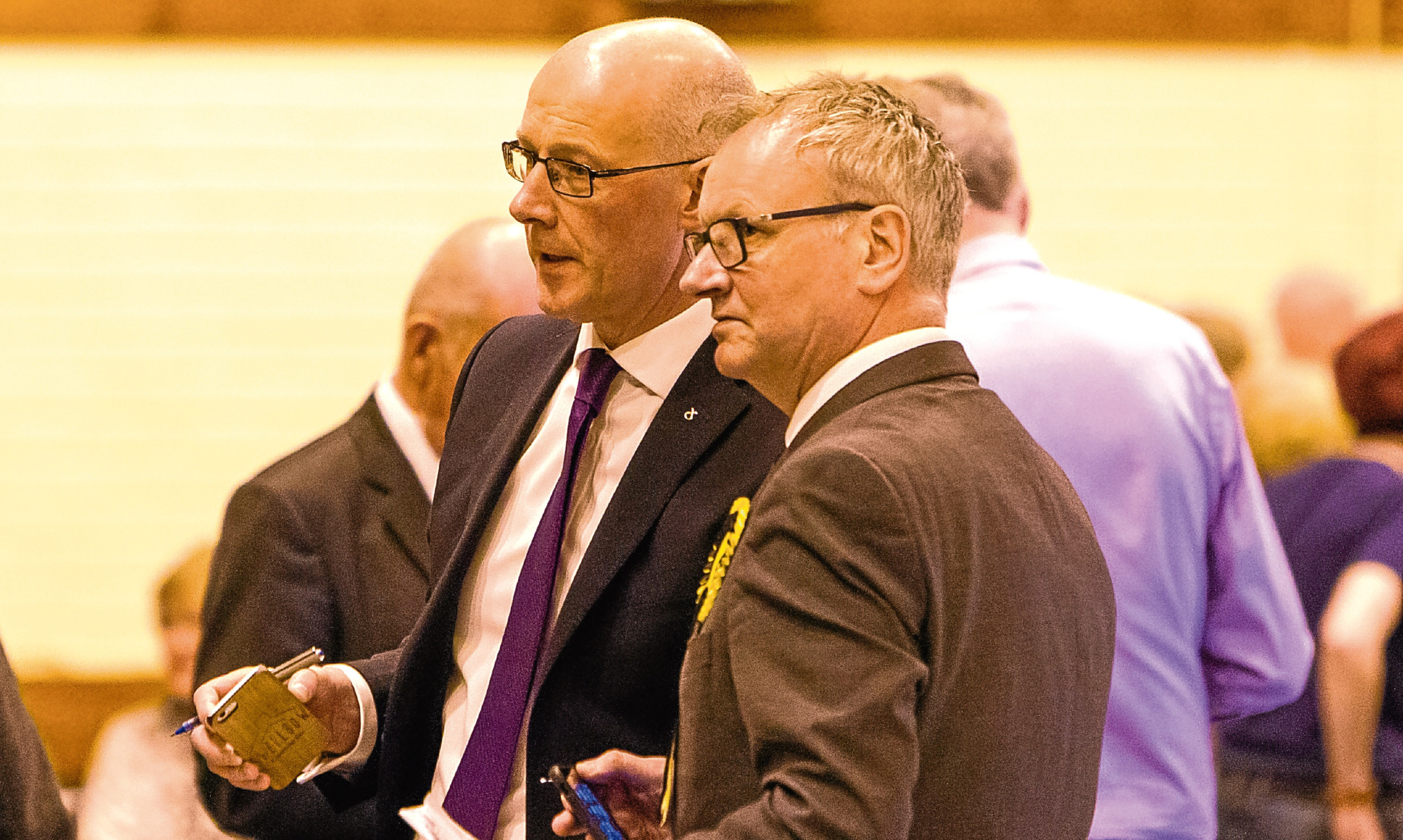There is something in the demeanour of Scotland’s two main political leaders, following last week’s local council elections, that gives the game away, regardless of their respective spin machines.
Ruth Davidson is too smart to appear triumphant over her Tory gains across the country – up by 161 council seats. The party line is that she goes into the general election on June 8 very much the underdog, so any advance will be good news.
As the Conservatives have just the one Westminster seat, compared to the SNP’s 54, that looks like a reasonable position to adopt.
However, the numbers don’t tell the whole tale.
Davidson has momentum on her side, having successfully built on the inroads she made in last year’s Holyrood elections, which saw her leapfrog over Labour to become the second biggest party in Scotland and the official opposition.
She may talk about the “Herculean effort” ahead but she can’t take the smile off her face.
Nicola Sturgeon, meanwhile, has fixed her features in a rictus grin. It is true the Nationalists won more seats than any other party last Thursday but they have not seized majority control of a single town hall.
Furthermore, when the figures are added up, it appears that the separatists were beaten by the Unionist parties.
This will only translate into winnable seats in some constituencies if there is tactical voting which, as this paper’s Kieran Andrews wrote on Monday, depends as much on the Lib Dems as the Tories.
But some of Sturgeon’s most senior MPs are looking more vulnerable after last week and her unstoppable surge, already faltering in May 2016, now looks like it is over.
What might have seemed unthinkable in the Nationalists’ heyday of two years ago, when they claimed more or less a monopoly of Scottish seats in the Commons, is now within reach for the Scottish Tories and maybe even a few Lib Dems too.
In the North-East, the SNP’s deputy leader, Angus Roberston, is having to watch his back as his once-secure majority of 9,000 in Moray comes under attack.
More than 36% of voters in the constituency opted for the Tories as their first preference in the local elections, while only 31% backed the SNP.
And there was an 18% increase in Tory support in the Holyrood vote last year, which if repeated would be enough to unseat the Nationalist veteran.
The bigger scalp of Alex Salmond is also a tantalising possibility, after the Tories won more first preference votes than the SNP in Gordon.
In fact, based on the council results, Davidson believes she could take as many as 15 seats from the Nationalists in June, several of them in Courier Country.
Pete Wishart in Perth and North Perthshire, in particular, must be worried, with the Tories gaining 41% of first preference votes last week, compared to the SNP’s 32 and fielding the likeable Ian Duncan, an MEP and a prominent No campaigner in 2014.
Angus and Stirling are also on Davidson’s hit list, while in North-East Fife it is the Lib Dems who could topple the sitting Nationalist, Stephen Gethins.
Here, it was they who won the most first preference votes in the council ballot – 38% to the SNP’s 25%. And the party’s Scottish leader, Willie Rennie, retook the Holyrood seat last year.
Perhaps if the Conservatives can bring themselves to vote Lib Dem for the Unionist cause, Gethins could lose his 4,344 majority.
But in most parts of Scotland it is a two-horse race between the Tories and the SNP. In Aberdeenshire, the Nationalists lost power to the Conservatives last week – and if Davidson has her way, they could win the Aberdeen South seat in Westminster.
She is targeting Berwickshire, Roxburgh and Selkirk in the Borders, as well as Central Ayrshire, Dumfries and Galloway, Edinburgh South West and East Renfrewshire.
Of course, the “fightback” against the SNP will have to contend with their formidable campaigning, as well as the strings they can pull as a party of government.
But the public mood has definitely changed and voters are following their instincts, rather than the Nationalists” diktats.
“The strength of feeling that’s out there at this election is so much stronger than I’ve come across at previous elections,” said Davidson.
In response, the SNP has labelled the Tories “arrogant” but that, to their cost, is how they are now perceived. Arrogant to assume they spoke for Scotland and arrogant to try to impose their party’s interests above the country’s.
Their reign has another four years to run in Scotland and they are likely to hang on to an impressive number of MPs but the prospect of constitutional upheaval is receding by the day.
